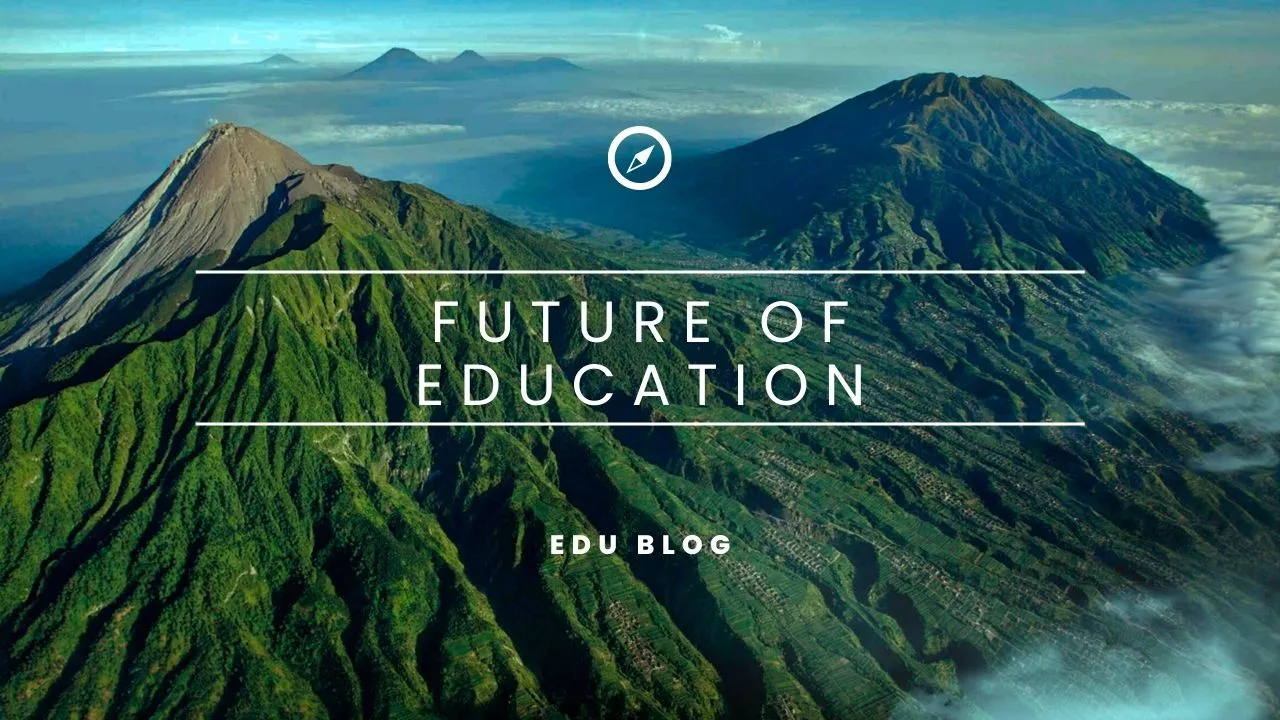Future of Education

01 August 2023

Embracing the Future: Transforming Education with Innovation and Technology
Embracing the future of education, innovative approaches and emerging technologies like AI, VR, and AR are reshaping the learning landscape, offering personalized experiences beyond traditional classrooms. The collaboration between education and industry prepares students for the job market, equipping them with relevant skills through practical experiences. This transformative path empowers learners to thrive in an interconnected world, fostering a brighter future through knowledge and empowerment.
Education is undergoing a profound transformation as it embraces innovative approaches and emerging technologies. The pillars driving this evolution are Online and Blended Learning, which offer personalized education beyond traditional classrooms. Emerging Technologies like AI, VR, and AR are reshaping the learning experience, providing immersive and adaptive platforms. Moreover, Education and Industry Collaboration prepare students for the job market, aligning curricula with industry demands and providing practical experiences. This exciting journey towards the future of education promises a world of knowledge, empowerment, and boundless possibilities for learners everywhere.
Idea in Brief
In the future of education, innovative approaches and emerging technologies such as online and blended learning, AI, VR, and AR will personalize learning, create immersive experiences, and foster collaboration with industries, preparing students for a dynamic and interconnected world.
Online and Blended Learning: Personalized Education Beyond the Classroom
Online and blended learning has revolutionized the educational landscape, offering personalized education beyond the traditional classroom setting. With the advent of the internet and advanced digital technologies, learners now have access to a wide range of online courses and resources that cater to their individual interests and needs. This shift towards online education has allowed for greater flexibility, enabling students to pursue their studies at their own pace and on their own schedule. Whether it's a working professional seeking to upskill, a student in a remote area, or someone with specific learning preferences, online education provides an inclusive and accessible platform for learning.
Moreover, blended learning, which combines elements of online and face-to-face instruction, has emerged as a highly effective approach. By integrating digital tools and resources into traditional classrooms, educators can create a dynamic learning environment that engages students in interactive and meaningful ways. Blended learning allows for a more tailored approach to education, as teachers can personalize the learning experience based on each student's progress and understanding. This personalized approach not only helps learners grasp complex concepts more effectively but also empowers them to take ownership of their education journey.
Furthermore, online and blended learning foster a global community of learners and educators. With online platforms, students can interact with peers and instructors from diverse backgrounds, cultures, and geographical locations. This multicultural exchange of ideas enriches the learning experience, promoting a deeper understanding of different perspectives and worldviews. Additionally, digital tools facilitate real-time collaboration and communication, enabling learners to work on group projects or participate in virtual discussions seamlessly. By transcending physical boundaries, online and blended learning create a more interconnected and inclusive educational landscape, preparing learners to thrive in an increasingly interconnected and diverse world.
Emerging Technologies: Reshaping Learning with AI, VR, and AR
Emerging technologies, such as Artificial Intelligence (AI), Virtual Reality (VR), and Augmented Reality (AR), are transforming the field of education and reshaping the way we learn. AI-powered tools and platforms are revolutionizing personalized learning experiences. By leveraging AI algorithms, educational systems can analyze vast amounts of data on individual students' performance, learning styles, and preferences. This data-driven approach allows for adaptive learning, where the curriculum can be tailored to each student's needs, strengths, and weaknesses. As a result, learners receive targeted support and resources, leading to more efficient and effective learning outcomes.
Virtual Reality (VR) and Augmented Reality (AR) technologies are redefining how students engage with educational content. VR immerses learners in simulated environments, offering hands-on experiences that would be otherwise challenging or impossible to access. For example, students can explore historical events, conduct scientific experiments, or visit far-off places—all from the comfort of the classroom. AR, on the other hand, enhances the physical environment by overlaying digital information, creating interactive and engaging learning materials. These technologies stimulate curiosity, spark creativity, and foster a deeper understanding of complex concepts, making learning more enjoyable and impactful.
The integration of AI, VR, and AR in education not only enhances the learning process but also nurtures essential 21st-century skills. With AI-powered tools assisting in data analysis and problem-solving, students develop critical thinking, analytical, and decision-making abilities. VR and AR experiences encourage collaboration, communication, and adaptability as students work together in shared virtual environments. Moreover, the use of these technologies in education prepares learners for a tech-driven world, equipping them with digital literacy and the ability to navigate and leverage technological advancements in various aspects of their lives. As these technologies continue to evolve and become more accessible, they hold immense potential to revolutionize education, providing learners with unparalleled opportunities for growth and development.
Education and Industry Collaboration: Preparing Students for the Job Market
Education and industry collaboration is a pivotal aspect of preparing students for the job market in the future of education. As the professional landscape evolves rapidly, educational institutions are recognizing the importance of aligning their curricula with industry demands. Collaborating with various sectors and businesses allows educators to gain valuable insights into the skills and competencies required by employers. By incorporating this industry-relevant knowledge into academic programs, students can acquire practical and up-to-date expertise, making them better equipped to meet the challenges of the job market.
Internships, apprenticeships, and work-integrated learning experiences are increasingly becoming integral components of educational programs. Through these opportunities, students gain hands-on experience and exposure to real-world scenarios, bridging the gap between theoretical knowledge and practical application. Moreover, industry placements enable learners to network with professionals, fostering valuable connections that can lead to future job opportunities. Such collaborations also allow students to explore different career paths, identify their strengths, and make informed decisions about their future career trajectories.
Education and industry collaboration not only benefits students but also creates a mutually beneficial relationship for both parties. Businesses gain access to a pool of talented and skilled graduates who can contribute to their organizations from day one. By collaborating with educational institutions, industries can also have a say in shaping the curriculum, ensuring it aligns with the latest trends and innovations. This partnership fosters a culture of continuous learning, where academia and industry work together to prepare the workforce of the future, capable of meeting the evolving demands of a dynamic global economy. In summary, education and industry collaboration play a pivotal role in preparing students for the job market, equipping them with the practical skills and knowledge necessary for a successful and fulfilling career.
Embracing the Future: Transformative Education
The future of education is bright with the convergence of innovative approaches and emerging technologies. Online and blended learning offer personalized and flexible experiences, while AI, VR, and AR provide immersive and engaging platforms. Collaboration with industries ensures students are equipped with relevant skills for the job market. This transformative path empowers learners to unlock their potential and shapes a brighter, more interconnected world through education.

